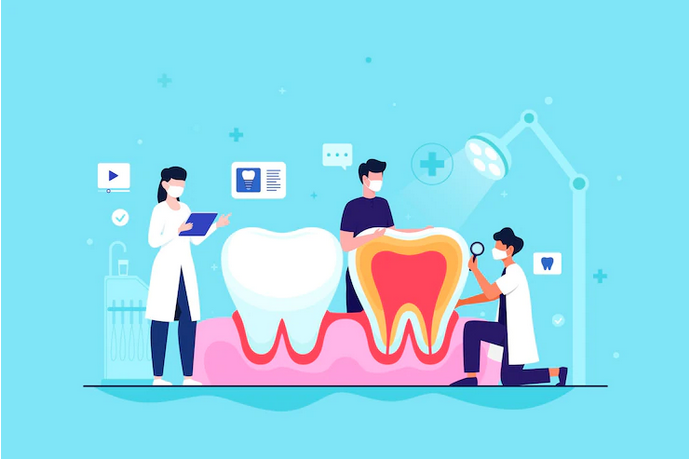The number one asset of any small business today is its online reputation. This is especially true for dentists, as more and more patients turn to online review sites like Google, Facebook, and Yelp to vet practices before booking that first cleaning or checkup.
Despite this, many dentists continue to overlook the importance of cultivating a strong online presence and actively managing customer feedback.
Without a clear digital marketing strategy for dentists centered around review management, they lose control over how their practice is perceived.
Why Reviews Represent Free Marketing Potential
Before outlining where many dentists fail with managing reviews, it’s important to recognize why they offer such lucrative marketing potential in the first place:
- Reviews influence purchasing decisions: Over 88% of consumers read online reviews before visiting a business. Positive reviews bring in new patients.
- High review volume builds trust: The more reviews a practice has, the more legitimate and established it will seem.
- Good reviews improve rankings: Review count and sentiment factor into search engine rankings.
In essence, reviews act as free advertising for dental practices. Constructive feedback sharing genuine patient experiences beats promotional content any day in its ability to convert new patients.
The question is: how are dentists failing to tap into this free marketing potential?
Key Areas Where Dentists Go Wrong
Though every practice is different, we have identified three core pitfalls dentists commonly fall victim to when trying to manage customer feedback:
Failing to Respond
The first mistake lies in failing to respond to reviews at all – whether positive or negative.
According to BrightLocal’s Local Consumer Review Survey:
- 73% of consumers will react more positively to businesses that respond to their reviews.
- 72% expect businesses to respond to their reviews within 7 days.
By not responding to patient reviews, you miss an opportunity to celebrate happy customers that can drive new ones your way while also failing to diffuse negative experiences that may dissuade potential patients from booking.
Weak Responses That Lack Resolution
The second common mistake lies in offering mediocre responses that lack meaningful resolution.
Look at these poor response examples:
“Sorry to hear you did not enjoy your cleaning. Let us know if we can improve anything on your next visit.”
“Thanks for the kind words, Jim! We appreciate you taking the time to leave us feedback.”
Neither response adequately addresses the core feedback shared. They come across as impersonal, lacking ownership of any role the practice may have played in a negative experience.
Without conveying a willingness to learn, improve, or offer resolution, such responses can leave both happy and unhappy customers feeling unheard.
Failing To Take Proactive Reputation Management Steps
Finally, many dentists fail to realize that with the right systems, they can transform online reviews from an obstacle into a valuable marketing asset.
Too often, practices lack structured processes centered on:
- Monitoring review sites for new patient feedback
- Crafting personalized responses that trigger a constructive dialogue
- Surveying patients on areas of improvement
- Embedding reviews onto their website to build trust
Without taking such proactive reputation management steps, they surrender control over how their practice is perceived online.
A Winning Digital Marketing Strategy for Dentists
So how should modern dentists leverage online reviews to bolster their marketing?
The key lies in viewing customer feedback through a reputation management lens and creating systems that enable you to:
- Show patients their reviews matter by responding quickly and appropriately
- Learn from reviews to fuel business improvement
- Share reviews to establish credibility and trust among potential new patients
More specifically, an effective digital marketing strategy for dentists should include:
Review Monitoring Software
Tools like ReviewTrackers enable you to aggregate reviews from various sites into a unified dashboard.
This saves the manual effort of checking different platforms for new reviews.
You can also set up custom alerts for:
- New negative reviews
- Competitor rating changes
- Sudden review spikes
Giving you real-time notifications to urgent review scenarios requiring action.
Proactive Patient Surveying
Rather than passively waiting for reviews, spend 15 seconds with patients post-appointment to gather actionable feedback via short single-question surveys.
This shows you value their input while uncovering areas for improvement that may otherwise only surface through negative reviews later on.
Personalized Responses
Craft unique responses that convey genuine appreciation for positives and accountability with negatives.
The LEARN model provides a framework:
- Listen to understand the complaint
- Empathize with the dissatisfaction
- Apologize for any failings
- Respond with a resolution offer
- Notify surrounding staff to prevent repeat issues
Proactive Review Generation
Explore review generation software that makes leaving feedback effortless for satisfied patients. This expands your positive review volume.
Responsive Website Integration
Embed visual review feeds or testimonials onto your website. When visitors see the social proof, it establishes credibility.
Overall, approach reviews as invaluable inputs to constantly improve. By taking a proactive approach versus helplessly waiting for sporadic negative blowback, you regain control over your online reputation – transforming it into a trust-building asset.


